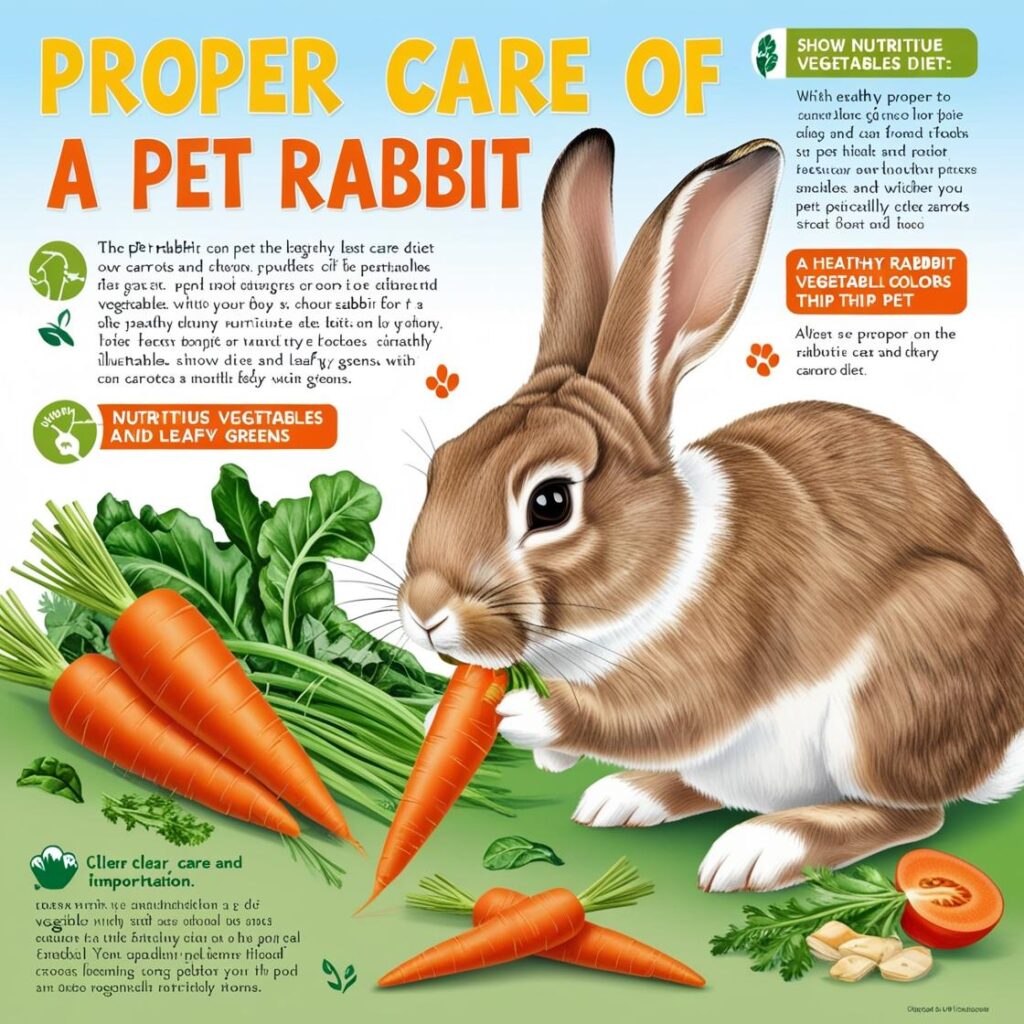Title: A Comprehensive Guide to Caring for Your Bunny Rabbit
Bunny rabbits, known for their gentle demeanor and engaging personalities, have become increasingly popular as companion animals. However, prospective and current bunny owners must understand that these charming creatures require specialized care to ensure their health and well-being. This blog post aims to provide a comprehensive overview of how to take care of a bunny rabbit, covering essential aspects such as diet, habitat, socialization, and healthcare.
Dietary Needs

A proper diet is fundamental to the health of your bunny. Unlike traditional pets, rabbits have unique nutritional requirements that must be met to promote optimal digestion and prevent health issues.
- Hay: Fresh hay should constitute the majority of your bunny’s diet. Timothy hay, orchard grass, and meadow hay are excellent options that provide essential fiber.
- Fresh Vegetables: Dark leafy greens should be offered daily. Options include romaine lettuce, kale, cilantro, and parsley. It is vital to introduce new vegetables gradually to avoid digestive upset.
- Pellets: A small quantity of high-quality rabbit pellets can be included in their diet. Choose a brand that is low in calcium and does not contain added seeds or dried fruits.
- Fresh Water: Clean, fresh water should be available at all times. Change the water daily to maintain hygiene.
Housing Requirements
Providing a safe and comfortable living environment is crucial for a bunny’s emotional and physical well-being.
- Space: Bunnies require ample space to hop around and explore. A large cage or pen that allows for a minimum of 12 square feet is recommended, but the more room they have, the better.
- Bedding: Provide soft bedding materials such as hay or paper-based products. Avoid using cedar or pine shavings as they can be harmful to a rabbit’s respiratory system.
- Enrichment: Bunnies are intelligent and curious animals. Enrich their environment with toys, tunnels, and safe chew items to keep them stimulated and active.
Socialization and Interaction
Bunny rabbits are social animals that thrive on companionship. Engaging with your bunny daily is vital for building a bond and preventing loneliness.
- Playtime: Allow your bunny time outside their enclosure for exercise and exploration. Supervised playtime in a safe space is ideal for facilitating physical activity and mental stimulation.
- Handling: Learn the proper way to hold and handle your bunny to ensure they feel secure. Support their hindquarters and avoid picking them up by their ears, as this can cause stress.
- Companionship: If possible, consider adopting a pair of bunnies as they often benefit from the company of another rabbit. However, ensure they are introduced safely and appropriately to prevent territorial disputes.
Healthcare
Routine healthcare can significantly impact your bunny’s lifespan and quality of life.
- Veterinary Visits: Schedule regular check-ups with a veterinarian experienced in rabbit care. Vaccinations and preventative care are essential in safeguarding against common rabbit diseases.
- Dental Care: Monitor your bunny’s teeth, as dental health is crucial for overall wellness. Bunnies naturally wear down their teeth through chewing hay; hence, access to hay is vital.
- Spaying/Neutering: Consider spaying or neutering your bunny to prevent behavioral issues and reduce the risk of certain health conditions.
In conclusion, caring for a bunny rabbit encompasses understanding their unique needs in diet, housing, socialization, and healthcare. By providing the necessary resources and attention, you can ensure that your bunny not only thrives but also becomes a beloved member of your family. As you embark on this rewarding journey as a bunny owner, remember that your dedication and compassion will create a lasting bond with your furry companion.